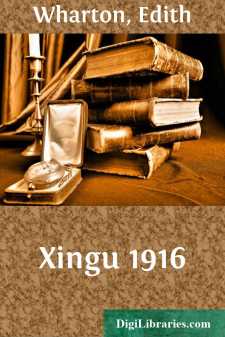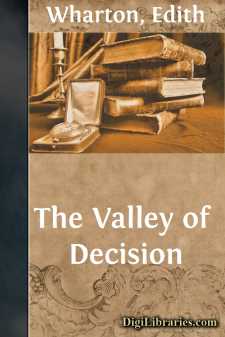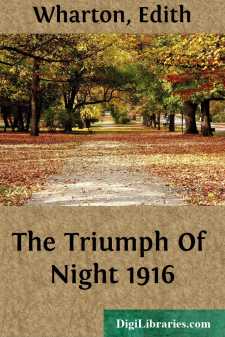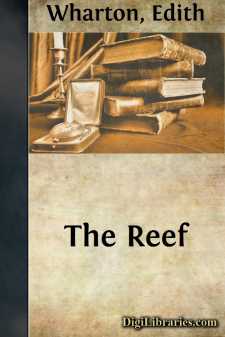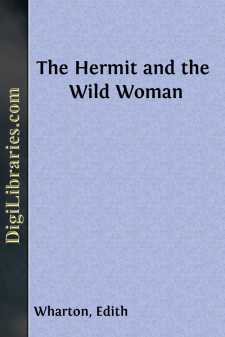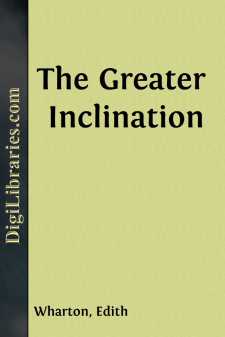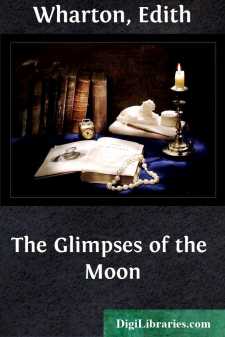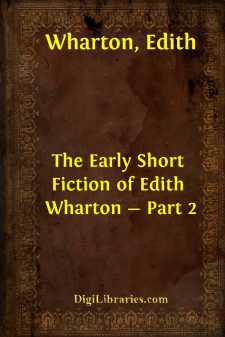Categories
- Antiques & Collectibles 13
- Architecture 36
- Art 48
- Bibles 22
- Biography & Autobiography 813
- Body, Mind & Spirit 142
- Business & Economics 28
- Children's Books 12
- Children's Fiction 9
- Computers 4
- Cooking 94
- Crafts & Hobbies 4
- Drama 346
- Education 46
- Family & Relationships 57
- Fiction 11828
- Games 19
- Gardening 17
- Health & Fitness 34
- History 1377
- House & Home 1
- Humor 147
- Juvenile Fiction 1873
- Juvenile Nonfiction 202
- Language Arts & Disciplines 88
- Law 16
- Literary Collections 686
- Literary Criticism 179
- Mathematics 13
- Medical 41
- Music 40
- Nature 179
- Non-Classifiable 1768
- Performing Arts 7
- Periodicals 1453
- Philosophy 64
- Photography 2
- Poetry 896
- Political Science 203
- Psychology 42
- Reference 154
- Religion 513
- Science 126
- Self-Help 84
- Social Science 81
- Sports & Recreation 34
- Study Aids 3
- Technology & Engineering 59
- Transportation 23
- Travel 463
- True Crime 29
Edith Wharton
Edith Wharton (1862-1937) was an American novelist and short story writer best known for her works exploring the lives and morals of the American upper class, including her Pulitzer Prize-winning novel "The Age of Innocence." Her writing style combined keen social observation with vivid, detailed prose, making her a significant literary figure of the early 20th century. Wharton was also an accomplished designer, traveler, and the first woman to win the Pulitzer Prize for Fiction.
Author's Books:
Sort by:
by:
Edith Wharton
Mrs. Ballinger is one of the ladies who pursue Culture in bands, as though it were dangerous to meet alone. To this end she had founded the Lunch Club, an association composed of herself and several other indomitable huntresses of erudition. The Lunch Club, after three or four winters of lunching and debate, had acquired such local distinction that the entertainment of distinguished strangers became...
more...
by:
Edith Wharton
THE OLD ORDER. Prima che incontro alla festosa fronteI lugubri suoi lampi il ver baleni. 1.1. It was very still in the small neglected chapel. The noises of the farm came faintly through closed doors—voices shouting at the oxen in the lower fields, the querulous bark of the old house-dog, and Filomena's angry calls to the little white-faced foundling in the kitchen. The February day was closing,...
more...
by:
Edith Wharton
It was clear that the sleigh from Weymore had not come; and the shivering young traveller from Boston, who had counted on jumping into it when he left the train at Northridge Junction, found himself standing alone on the open platform, exposed to the full assault of night-fall and winter. The blast that swept him came off New Hampshire snow-fields and ice-hung forests. It seemed to have traversed...
more...
by:
Edith Wharton
I Professor Joslin, who, as our readers are doubtless aware, is engaged in writing the life of Mrs. Aubyn, asks us to state that he will be greatly indebted to any of the famous novelist's friends who will furnish him with information concerning the period previous to her coming to England. Mrs. Aubyn had so few intimate friends, and consequently so few regular correspondents, that letters will be...
more...
by:
Edith Wharton
"Unexpected obstacle. Please don't come till thirtieth. Anna." All the way from Charing Cross to Dover the train had hammered the words of the telegram into George Darrow's ears, ringing every change of irony on its commonplace syllables: rattling them out like a discharge of musketry, letting them, one by one, drip slowly and coldly into his brain, or shaking, tossing, transposing...
more...
by:
Edith Wharton
It was last winter, after a twelve years' absence from New York, that I saw again, at one of the Jim Cumnors' dinners, my old friend Halston Merrick. The Cumnors' house is one of the few where, even after such a lapse of time, one can be sure of finding familiar faces and picking up old threads; where for a moment one can abandon one's self to the illusion that New York humanity is...
more...
by:
Edith Wharton
THE Hermit lived in a cave in the hollow of a hill. Below him was a glen, with a stream in a coppice of oaks and alders, and on the farther side of the valley, half a day's journey distant, another hill, steep and bristling, which raised aloft a little walled town with Ghibelline swallow-tails notched against the sky. When the Hermit was a lad, and lived in the town, the crenellations of the walls...
more...
by:
Edith Wharton
THE MUSE'S TRAGEDY Danyers afterwards liked to fancy that he had recognized Mrs. Anerton at once; but that, of course, was absurd, since he had seen no portrait of her—she affected a strict anonymity, refusing even her photograph to the most privileged—and from Mrs. Memorall, whom he revered and cultivated as her friend, he had extracted but the one impressionist phrase: "Oh, well,...
more...
by:
Edith Wharton
PART I I IT rose for them—their honey-moon—over the waters of a lake so famed as the scene of romantic raptures that they were rather proud of not having been afraid to choose it as the setting of their own. "It required a total lack of humour, or as great a gift for it as ours, to risk the experiment," Susy Lansing opined, as they hung over the inevitable marble balustrade and watched...
more...
by:
Edith Wharton
"Oh, there IS one, of course, but you'll never know it." The assertion, laughingly flung out six months earlier in a bright June garden, came back to Mary Boyne with a sharp perception of its latent significance as she stood, in the December dusk, waiting for the lamps to be brought into the library. The words had been spoken by their friend Alida Stair, as they sat at tea on her lawn at...
more...


